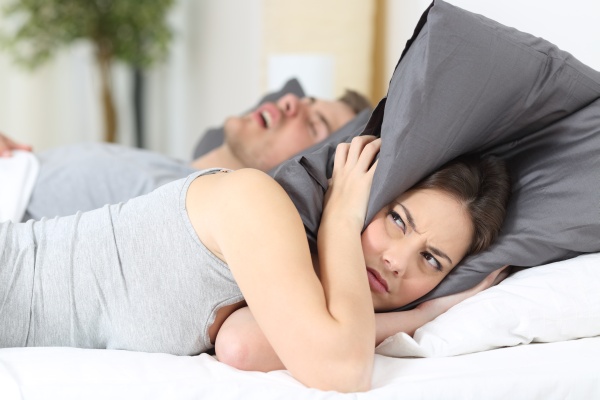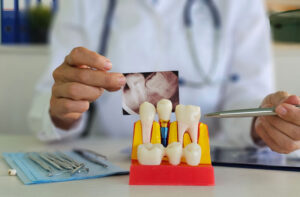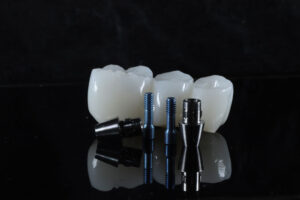Snoring at Night? It Could Be Sleep Apnea
Close to 90 million Americans snore while they sleep, and half of them do so because they suffer from sleep apnea. The other half, who are known as simple snorers, do not suffer from sleep apnea. Since most people associate snoring with sleep apnea, there is a common assumption that loud snorers have the disorder, which is inaccurate.
Is your loud snoring a symptom of sleep apnea?
In order to treat these two conditions properly, it is important to understand the difference between the two. Snoring is caused by the tissues in the throat relaxing to the point that they partially block the airway, which leads to a vibration that causes sound. Snoring also occurs in individuals depending on their anatomy, age, weight and other lifestyle factors.
Sleep apnea is a condition that causes pauses in breathing while a person is asleep, which interrupts their sleep. People with sleep apnea can stop breathing for a few seconds to a minute or more while they are asleep and may continue waking up briefly during the night to resume breathing.
Getting treatment
People who snore while they sleep or have trouble sleeping should talk to a doctor to find out if a sleep study is necessary to diagnose their condition. Seeing a doctor about the problem eliminates inaccurate self-diagnosis, allowing the patient to receive the right treatment.
How is snoring treated?
Snoring can be treated with lifestyle changes that include:
- Losing weight
- Exercising regularly
- Consuming less alcohol
- Quitting smoking
- Changing sleeping positions
If the lifestyle changes do not work, other treatment options that can be used to treat the sleep apnea include:
- Nasal strips
- Oral devices
- Surgery
How is sleep apnea treated?
Sleep apnea is treated using similar methods to the treatment used for snoring, specifically the lifestyle changes. However, when those do not work, the other treatment options used to treat the disorder are:
- Continuous positive airway pressure (CPAP) machines: The CPAP machine is an air blower that is connected to a mask that fits over the mouth and nose. The machine delivers pressurized air through the mask while the patient is sleeping to keep the airway open, allowing normal breathing. Even though the CPAP machine is very effective in treating sleep apnea, some patients have difficulty sleeping with it attached to their nose.
- Expiratory positive airway pressure (EPAP): This treatment option is an alternative for people who have trouble sleeping with CPAC machines because it does not require a mask or electricity. It is a non-invasive nasal device that uses a MicroValve design that is attached over the nostrils and secured in place with an adhesive.
- Oral appliances: They are another alternative to CPAP machines for people that have trouble sleeping with the CPAP. They are designed to keep the throat open while the patient is sleeping by moving the jaw forward, which relieves the sleep apnea.
- Surgery: Surgery is recommended when the patient’s jaw has structural damage that needs to be fixed or when other treatment options have failed.
Conclusion
Snoring can easily be mistaken as a symptom of sleep apnea but it does not necessarily mean you have the disorder. If you snore and want to know if you have sleep apnea, schedule an appointment with your doctor to have a sleep study conducted.
Request an appointment here: https://www.preferreddentalcenter.com or call Preferred Dental Center at (210) 822-8500 for an appointment in our San Antonio office.
Check out what others are saying about our services on Yelp: Read our Yelp reviews.




